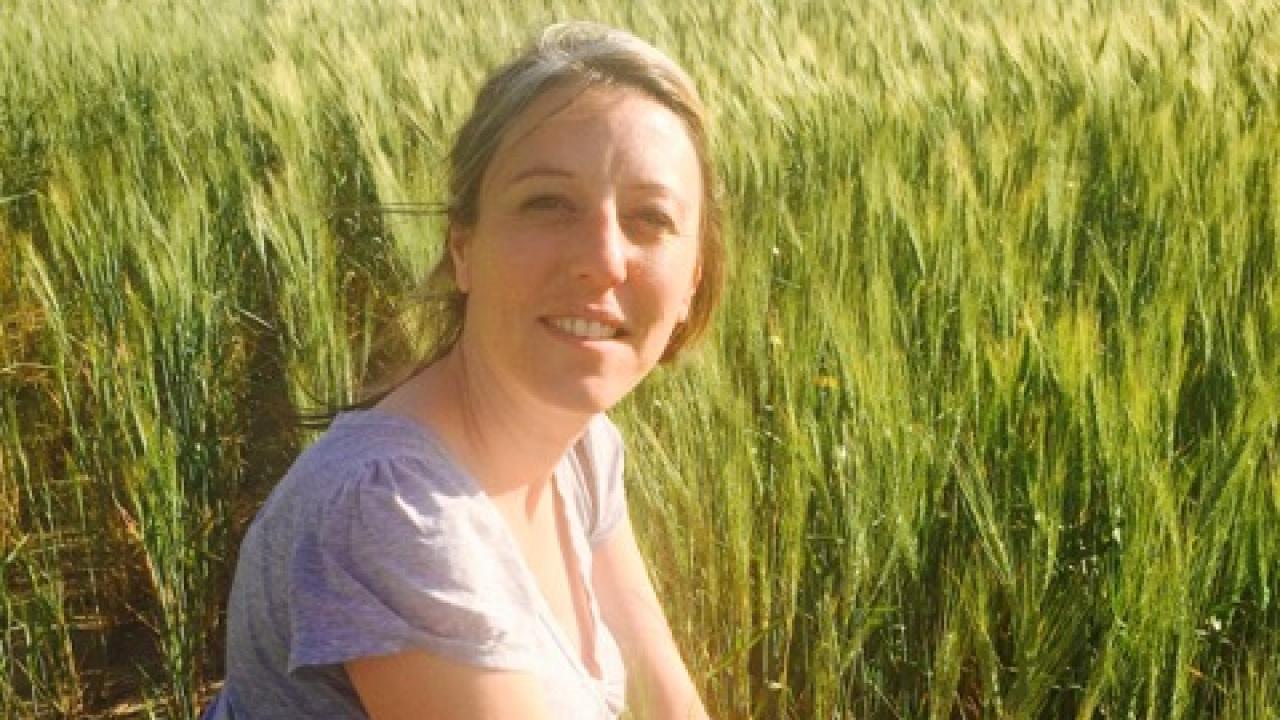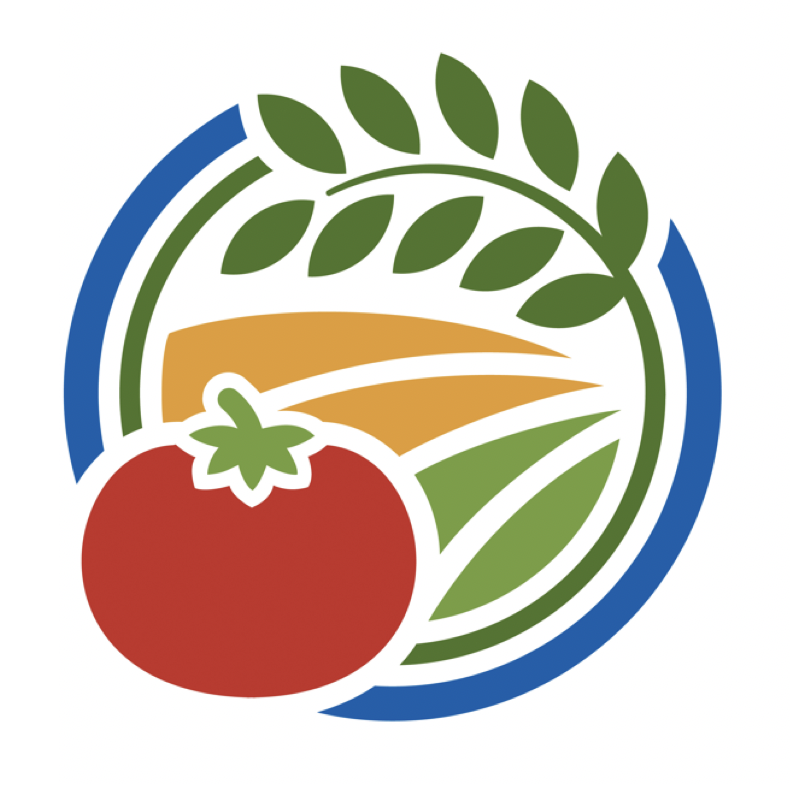
Agroecology, internationally and at home
For many years, a key international strategy to ending hunger has been to grow more food: push for higher yields, develop ways for farmers to intensify their farming, focus on technologies that drive both. But that focus may be shifting towards another strategy that better accounts for the environment and human well-being – agroecology.
Barbara Gemill-Herren, a retired officer from the Food and Agriculture Organization of the United Nations, spoke recently at UC Davis of the ongoing process at the United Nations to determine an international strategy for agricultural development.
For many, a new paradigm needs to strike a balance between supporting small-scale farmers, supporting healthy ecosystems, and bringing in the technology that can help meet changing challenges for growers.
Agroecology has recently entered the vocabulary at the UN as a potential unifying principle for agricultural development.
As its name suggests, agroecology studies the ecology of the entire food system, focusing on environmental, economic and social dimensions and how they interact with one another.
Beyond that definition, the term is used and understood differently by different groups. For some, agroecology is a scientific discipline, for some it represents a way for farms to be managed. For others, it is a social movement that brings local and indigenous knowledge to the center of agricultural development.
At the United Nations meetings on agroecology, each of these interpretations of agroecology have been on the table for discussion — how they can be used to improve international agricultural development will be revealed in global conversations in the years to come.
Agroecology endowment at UC Davis secures research opportunities
Here at home, agroecology is on the upswing as well. Funding for a $1 million endowment in agroecology was recently secured at UC Davis to help fund the research, education, and outreach conducted by an agroecology faculty member. Collaborating with UC Cooperative Extension farm advisors from UC Agriculture and Natural Resources will be a key way for future work to connect with growers.
Endowments offer reliable funding every year that allow faculty to plan longer term research. For research like agroecology that looks at how agricultural systems function, that flexibility is important, if not essential.
Tom Tomich, director of the Agricultural Sustainability Institute, which helped raise funds for the endowment, says, “The endowment represents at a broad spectrum of philanthropists and shows that scientific approaches to agroecological systems science is appreciated by our stakeholders in California. It's a form of legitimization of systems science applied to agriculture.”
Opportunities for collaboration between researchers and farmers
For Amélie Gaudin, assistant professor of Agroecology at UC Davis, agroecology is on a promising path toward sustainability for California agriculture. Gaudin started working at UC Davis in 2015 and is building her research and community relationships.
Below are some thoughts from Gaudin on how she approaches her work and how she sees this agroecology endowment impacting research and education at UC Davis.
How do you define agroecology?
There are different definitions of agroecology for different people. Mostly I see it as research to understand dynamics of ecological processes and to apply ecology to agricultural systems design. Agroecology merges the food security and production goals of agriculture with resource use efficiency goals and environmental goals in agriculture. For many people, agroecology is a social movement to make systems socially just. While my focus is largely on biological processes, it's also about learning from small-scale farmers who have been successful in their management practices to see how we can translate those successes to other contexts. And that is very social in nature.
At what scale do you research?
Usually we tend to work at the field scale, looking at cropping systems and the landscapes that surround them. Looking at the field, we can see how the long term management of a farm has affected the soil and its functioning as well as productivity and provision of multiple other ecosystem services. Looking at the surrounding landscape, we can understand what the natural environment has provided to the farm system, and what the farm system provides back to the natural environment. Sometimes we look a meter out, sometimes a kilometer out.
But beyond just the space we look at, we're really looking at time. Nature takes time. When you look at the field, it's an observation of what has been going on there for a very long time.
How does agroecology research work with farmers?
Working with farmers helps give research the long-term lens and management gradients we need to understand these agricultural systems, and gives us a landscape lens that many research fields can't provide. It also helps relate our research to production constraints that farmers have.
There is also tremendous innovation in what farmers are coming up with. They have a specific problem and they usually have tried specific solutions. They test things out, they monitor their fields and see results, but maybe don't understand fully the underlying mechanism and potential impact on the environment. We try to get to the why; we try to connect the dots to enable scaling up and better understanding of the ecological processes regulating resource use efficiency.
We're also looking a lot at resilience to stresses. And we find more and more interest in this because resources are not plentiful anymore and we now have to produce more with less. So how do we build resilience to the multiple stresses that come along? Are there ways that the management of a farm can impact productivity when a stress like drought occurs?
We have a lot to learn from small growers and a lot to learn from growers who have constrained resources about what they have been implementing and experimenting with. How can we transfer those practices to different environments? How can we scale them up?
How can we make it work in large-scale agriculture? There's a huge opportunity there. I want to see agroecological approaches to management implemented all over the Midwest, all over the Central Valley. I think agroecology is compatible with large-scale agriculture and critically needed.
How do you approach research questions?
I start with the problems a farmer didn't have. One project started with a tomato farmer who didn't have the same insect problem that surrounding farms had. So we ask, what is he doing that created this insect resistance, and how can that be used by other farmers? We met with several different farmers to discuss the issue, and wrote a grant to investigate specific hypothesis across a management gradient.
We're now working with five different growers and using Russell Ranch, our long-term agricultural research facility, as a benchmark.
I think conversation with farmers and their advisors is critical to develop relevant research questions and alternatives which have conservation of natural resources, biodiversity and provision of ecosystem services as a basis for improvement. It is also important to keep a positive feedback loop and bring results back to the community to foster farmer-to-farmer knowledge transfer.
What excites you about this new investment in agroecology?
The context of agriculture is changing and we now have a tremendous opportunity to promote agroecology as a viable and necessary strategy to build the sustainability and resilience of our agriculture. Farmers are seeking solutions, they are aware and interested. With climate change and depleted resources becoming more of a reality, growers are interested in putting soil improvement and ecological principles back into their management framework. And I think we ultimately care about the same things, we just need to find common ground and start speaking the same language. To do it we have to be open minded, both on the researcher and farmer side.
Investment in agroecology will help us reach this objective and gives us an opportunity to think outside of the box. This gives an opportunity to be creative, cope with some of the pitfalls of science funding and take a participatory approach to interdisciplinary research to design holistic solutions that better use nature for a sustainable agriculture.
